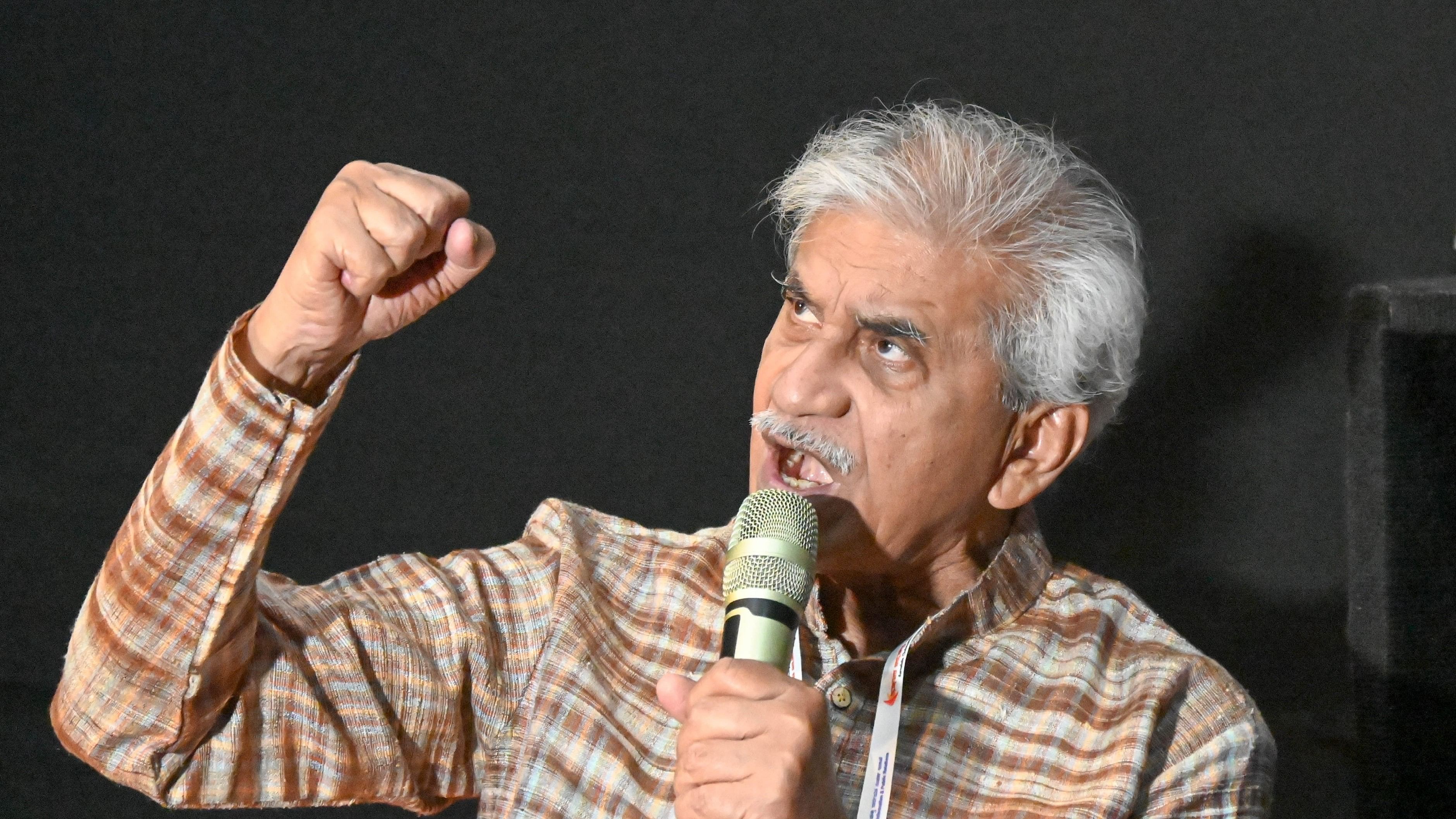
Lecture on Constitutional Values & Indian Cinema by Dr Jabbar Patel, at the 15th 'Bengaluru International Film Festival', PVR Cinimas, Orion Mall in Bengaluru on Friday. Festival Artistic Director
Credit: DH Photo/ B H Shivakumar
Veteran filmmaker Dr Jabbar Patel on Friday recalled how Mollywood superstar Mammootty was initially reluctant to play Ambedkar’s role in the eponymous film on the architect of the Constitution.
He was delivering a lecture on ‘Constitutional Values and Indian Cinema’ to a packed audience on the second day of the Bengaluru International Film Festival (BIFFes).
Speaking about his film ‘Dr Babasaheb Ambedkar’ (2000), Patel said Mammooty was hesitant to get a clean shave as sporting a moustache is regarded as macho in Mollywood.
He said the biggest compliment for the film came from Babasaheb’s grandson Prakash Ambedkar. “Prakash told Mammootty that every Dalit household in India has photos of Buddha and Ambedkar and added that from then, Mammootty’s photo would join them.”
Recalling the shooting of the film, Dr Patel said Columbia University had initially denied permission to shoot the film on their campus. “They eventually allowed us and charged no fee when they realised the greatness of their alumnus,” the director said.
Poetically describing the Indian freedom struggle as a fight for one mango, Dr Patel said we were gifted two in the form of freedom and democracy. He said the art of conveying Constitutional values is key and said even commercial films have incorporated these values in them.
“Manmohan Desai’s ‘Amar Akbar Anthony’ was an out-and-out masala entertainer with improbable elements and an unrealistic storyline. However, with three heroes from different faiths, it portrayed Constitutional values with aplomb,” the director said.
To a question from the audience on whether the depiction of such values in contemporary cinema has reduced compared to the past, Dr Patel said such issues were more prevalent in commercial cinema before as several communities were oppressed in the early post-colonial years.
“Of late, with OBC communities also getting reservations, the urge for social justice has slightly reduced among certain sections. However, we still have bold films like ‘Article 15’ that have boldly portrayed the Constitutional values,” he said.
Dr Patel said he has a special fondness for south Indian films and appreciated them for their nuanced handling of sensitive topics.
Answering another query about the evolution of lyric-writing in films over the years, the veteran filmmaker said everyone has to change as per the demands of changing times.
“Dadasaheb Phalke was the master of silent films but even he failed to churn out a success when talkie films took over,” he said. Filmmaking techniques change every 10 years and it is imperative for artists to follow suit, Dr Patel added.
He lamented that the portrayal of women characters in Indian cinema is largely stereotyped and added that irrespective of their economic status, women are shown as subservient to men.